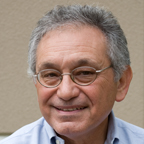An article recently published in The Economist argued that an ever increasing lack of civility and decency in political debate is weakening the foundation and fabric of democracy in Britain and the United States. The “Bagehot” essay suggests, and correctly so, that the vitriol that’s spewed forth by leaders and ordinary people alike undermines one of the important strengths of democracy. As Bagehot put it in the context of British politics, “The great achievement of parliamentary democracy is that it takes potentially violent political conflicts and civilizes them.” The same can be said about American democracy. The assumption driving this argument is that democracy thrives and retains its vibrancy when people pursue compromise and cooperation, when people understand that civilized political discourse is the lifeblood of collective problem solving. Democracy is a fragile system of government. It assumes as much about the strength and character of its people as it does about the structure of its political institutions.
If it seems like the foundations of democracy are being threatened by a diminished civility in political debate, by a “them vs. us” mentality, by a media that divides political debate between the “left” and the “right” with little concern about the compromise in the center, by tweets that reduce complex political issues to 140 characters, then it’s probably an opportune time to examine the basis of democracy more thoroughly. This is one of the purposes of the course I’m offering through the Osher Lifelong Learning Institute at FAU, Jupiter during the Fall 2017 semester called “Reel Democracy: How Movies Inform Us About American Politics and Political Debate.” This course will use a variety of movies, some old classics such as “Mr. Smith Goes to Washington” and some relatively new, such as “The Iron Lady”, to explore ideas about democracy, its strengths and weaknesses, what we expect from candidates who choose to run for public office, what we demand of them after they are elected, and perhaps most important, how democracy can protect itself from internal and external threats that undermine its very existence.
Burton Atkins, Ph.D., fall 2017 course at Osher Lifelong Learning Institute at FAU, Jupiter
“Reel” Democracy: How Movies Inform Us About American Politics and Political Debate
Wednesdays, October 18, 25; November 1, 8, 15, 29, 2017 (No class on November 22)
To register for the full 6 week course, click here.
To register for the last 4 weeks of the course, click here.
To register for the one-time lecture, “Reel” Jews and Judaism: How Movies Create a Cultural Record of Jewish History and Traditions on Tuesday, December 5 at 12 p.m., click here.







